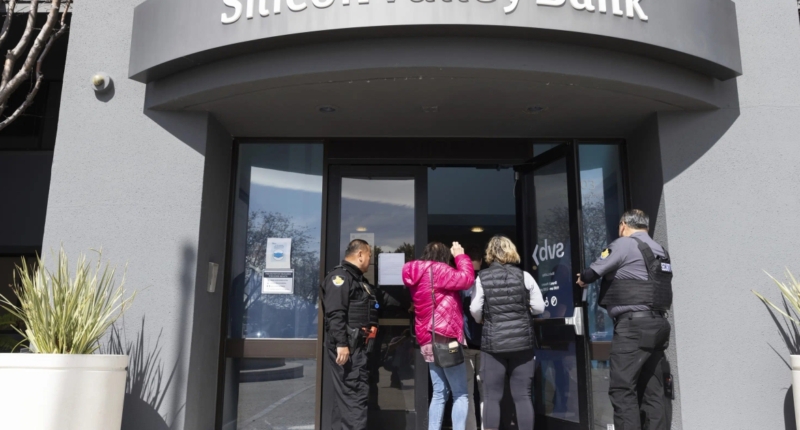Smaller and minority-owned banks have historically addressed funding gaps that larger banks ignored, following exclusionary laws and policies. However, Silicon Valley Bank’s collapse is being felt among these banks as well. Black-owned banks have been hit the hardest, and most don’t have as much capital to withstand economic downturns. The shift in banking highlights a broader impact on startups led by people of color, making it even harder for them to secure funding or a financial home that supports their startups. Within the last three years, the federal government, private sector, and philanthropic community have invested heavily in minority-run depository institutions. As people network in the WhatsApp group to help each other remain afloat and grow, new opportunities arise. Finally, the impact of SVB’s collapse on startups led by people of color highlights the importance of having a diverse banking system. Minority-owned banks can address funding gaps that larger banks ignore and offer crucial opportunities for people of color to build relationships in the technology and financial communities that would otherwise be out of reach.
Silicon Valley Bank’s Collapse Raises Concerns for Founders of Color
The recent collapse of Silicon Valley Bank (SVB) has sparked concerns among startup founders who are immigrants of color. Following the news that some of SVB’s largest customers were withdrawing their money, a WhatsApp group of startup founders who belong to this demographic grew to over 1,000 members. Many expressed worries about the impact of SVB’s financial instability on their startups.
As SVB was one of the few banks that provided opportunities for such entrepreneurs, smaller players in the industry now face greater challenges in securing funding and support for their startups. These minority entrepreneurs are already navigating industries that have a long history of racism, making it difficult for them to survive a collapse.
While some investors have advised startups to switch to larger financial institutions, this is not always an easy transition. Asya Bradley, a board member of numerous startups, noted that many minority entrepreneurs have special circumstances that make them unbankable by the top four large banks. She also pointed out that large banks often do not want their business.
Banking expert Aaron Klein of the Brookings Institution warned that SVB’s collapse could exacerbate racial disparities, as the financial system tends to prefer the existing holders of wealth. This perpetuates the legacy of past discrimination and makes it harder for minorities to access credit.
The collapse of SVB has also highlighted issues around opening bank accounts for immigrants of color. Some members of the WhatsApp group were desperate for advice on how to open an account at a larger bank without a Social Security Number. Others questioned whether they had to physically be at a bank to open an account, as they were visiting parents overseas.
In summary, the collapse of SVB has raised concerns for startup founders who are immigrants of color, particularly around securing funding and support for their startups. The financial system’s preference for existing holders of wealth could exacerbate racial disparities, making it harder for minorities to access credit.
Black Founders Face Funding Challenges in the Wake of SVB’s Collapse
Black-founded startups, which already receive less than 1% of venture capital funding, are facing further challenges in the aftermath of the collapse of Silicon Valley Bank (SVB). SVB was known for its close ties to the tech community and investors and was a popular choice for entrepreneurs looking to secure funding. However, the bank’s collapse has raised concerns about the impact on startups led by people of color.
Amy Hilliard, a professor at the University of Chicago Booth School of Business, noted that banking is based on relationships, and when a bank like SVB goes under, those relationships go away too. Hilliard, who is African American, knows from experience how difficult it is to secure financing. She had to sell her home to start her cake manufacturing company after struggling for three years to secure a loan.
Black-founded startups saw funding slow by more than 50% last year, dropping to just $2.3 billion or 1.1% of the total, according to a February Crunchbase News analysis. While overall venture funding dropped from about $337 billion to roughly $214 billion, Black founders were hit disproportionately hard after receiving a record $5.1 billion in venture capital in 2021.
SVB’s collapse has highlighted issues around opening bank accounts for immigrants of color. Startup founders in a WhatsApp group expressed concerns about whether they could open accounts at larger banks without a Social Security Number and whether they needed to be physically present at a bank to open an account while visiting parents overseas.
While some investors have advised startups to switch to larger financial institutions, this is not an easy transition, particularly for those with special circumstances that make them unbankable by larger banks. Banking expert Aaron Klein of the Brookings Institution warned that SVB’s collapse could exacerbate racial disparities, as the financial system tends to prefer the existing holders of wealth. This perpetuates the legacy of past discrimination and makes it harder for minorities to access credit.
Valerie Red-Horse Mohl, co-founder of Known Holdings, a Black, Indigenous, Asian American-founded investment banking platform, said most larger banks are led by white men and majority-white boards, and “even when they do DEI programs, it’s not a really deep sort of shifting of capital.” Smaller financial institutions have worked to build relationships with people of color and their collapse would be a “travesty.”
Black entrepreneurs who have managed to secure funding have praised SVB for its support. Tiffany Dufu, CEO of The Cru, a New York-based career coaching platform and community for women, banked with SVB because of its close ties to the tech community and investors. Dufu raised $5 million, a rare feat for businesses founded by Black women. She pitched nearly 200 investors over the past few years and described the money in her SVB account as “very precious.” Dufu has since regained access to her funds and moved to Bank of America.
Minority-Owned Banks Feel Ripple Effects from SVB’s Collapse
Historically, smaller and minority-owned banks have addressed funding gaps that larger banks ignored or even created by following exclusionary laws and policies that turned away customers because of the color of their skin. However, the collapse of Silicon Valley Bank (SVB) is being felt among these banks as well.
According to Nicole Elam, president and CEO of the National Bankers Association, a 96-year-old trade association representing more than 175 minority-owned banks, some have seen customers withdraw funds and move to larger banks out of fear, even though most minority-owned banks have a more traditional customer base with secured loans and minimal risky investments. Black-owned banks have been hit the hardest as the industry consolidates, and most don’t have as much capital to withstand economic downturns. At its peak, there were 134; today, there are only 21.
This shift in banking highlights a broader impact on startups led by people of color, making it even harder for them to secure funding or a financial home that supports their startups. While some investors have advised startups to switch to larger financial institutions, this is not an easy transition, particularly for those with special circumstances that make them unbankable by larger banks.
Within the last three years, the federal government, private sector and philanthropic community have invested heavily in minority-run depository institutions. “In response to this national conversation around racial equity, people are really seeing minority banks are key to wealth creation and key to helping to close the wealth gap,” Elam said.
While there have been concerns about the erosion of public trust, there is a silver lining. Asya Bradley, a board member of numerous startups and an angel investor, has seen new opportunities arise as people network in the WhatsApp group to help each other remain afloat and grow. Despite the downfall of SVB, the WhatsApp group has managed to form an incredible community of folks that are trying to help each other succeed. “They’re saying, ‘SVB was here for us, now we’re going to be here for each other,’” Bradley said.
Although smaller financial institutions have worked to build relationships with people of color, banking expert Aaron Klein of the Brookings Institution warns that SVB’s collapse could exacerbate racial disparities, as the financial system tends to prefer the existing holders of wealth. This perpetuates the legacy of past discrimination and makes it harder for minorities to access credit.
Finally, the impact of SVB’s collapse on startups led by people of color highlights the importance of having a diverse banking system. Minority-owned banks can address funding gaps that larger banks ignore and offer crucial opportunities for people of color to build relationships in the technology and financial communities that would otherwise be out of reach. The collapse of SVB serves as a reminder that diversity, equity, and inclusion in the banking sector are crucial to building a more equitable financial system.
Don’t miss interesting posts on Famousbio









